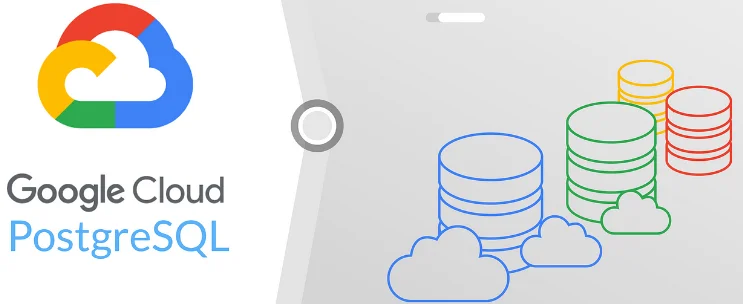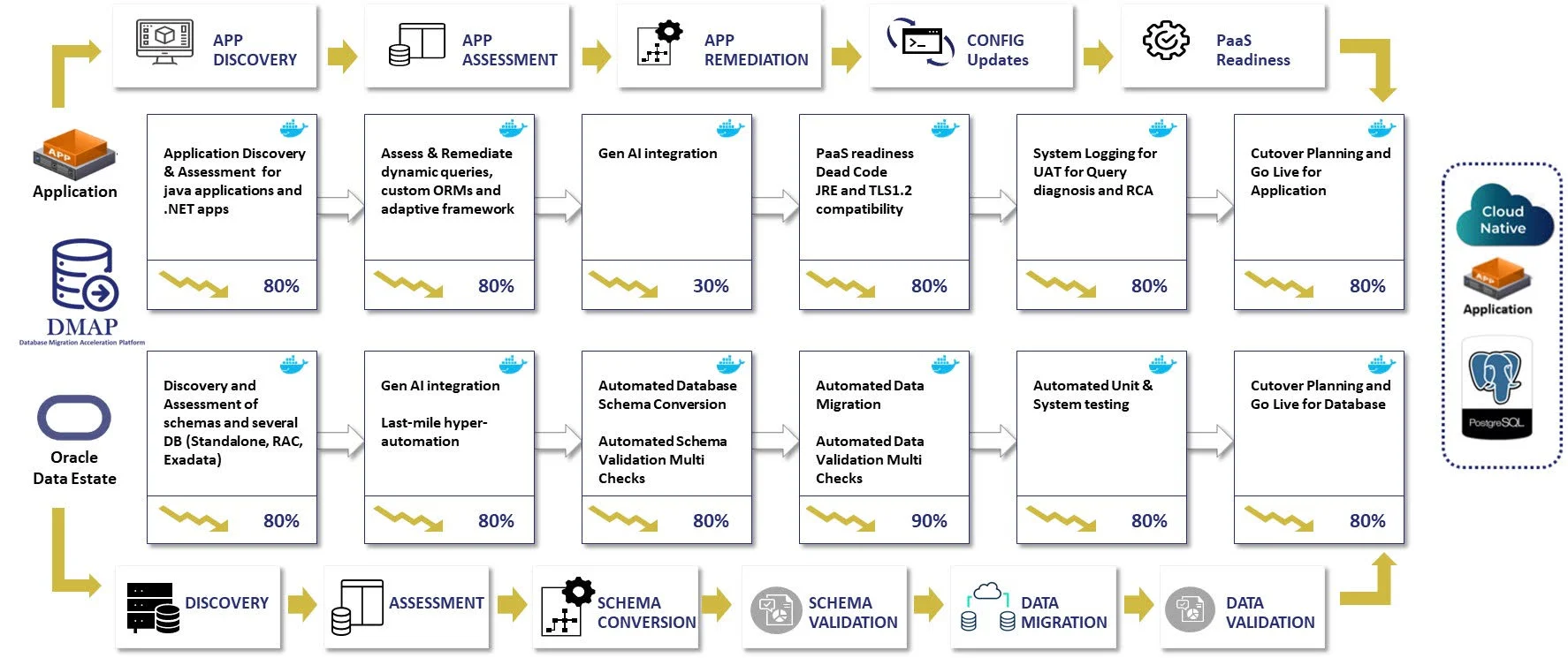DMAP on Google cloud Platform Overview
All major public cloud vendors are offering solutions to migrate on-prem licensed RDBMS to cloud platforms. But the enterprise users may have to overcome an expensive & tedious process of converting database schema to the target database seamlessly. Newt Global’s database migration tool, called DMAP help in PostgreSQL Migration on Google GCP efficiently.
Newt Global addresses this issue through its proven Database Migration Acceleration Platform called DMAP. DMAP accelerates the database schema conversion process through progressive automation. Enterprises can cross the chasm with DMAP while migrating their licensed RDBMS to the PostgreSQL database.
DMAP extends the conversion to cover stored procedures, functions, SQL queries, business logic, and custom schema constructs beyond the standard conversion tools provided by public cloud platforms. This helps in saving significant time and effort needed in database
Key Features
- Multiple configuration options for selecting complex stored procedure/function elements that have varying implications regarding usage
- Support for Named Block and Un-named (Anonymous) Block
- Compatible with the latest version of schema conversion tools
- DMAP Tool is fully compatible with Oracle 10g Onwards
- A project plan for Database Migration from On-premise to cloud platform with the breakdown of automation, manual elements

Business Impact
- Enterprises can save millions of dollars in recurring Database licensing costs by migrating to PostgreSQL on cloud
- Database migration efforts can be reduced by 30% to 40%
- Cloud-Native databases (PaaS) will make your database management more efficient
- End-to-end traceability of all the Database migration steps


